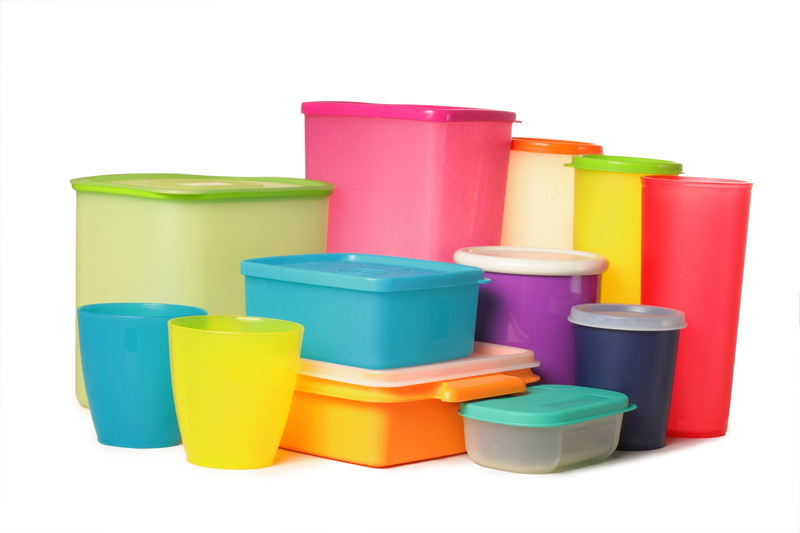Reclaim Your Space and Mind: The Art of Decluttering and Minimalist Living
In a world overwhelmed by consumerism, clutter, and obligations, the idea of reclaiming space and peace of mind has never been more attractive. Discover the transformative power of decluttering and embracing a minimalist lifestyle, and learn how these approaches can lead to a more fulfilling existence. This article delves deep into the art of decluttering and the principles of minimalist living, offering step-by-step guidance, practical tips, and insights for sustainable change.
Why Decluttering Matters for Your Home and Mind
Many people underestimate the impact of their surroundings on their mental health. Clutter not only takes up physical space but also leads to mental overload, stress, and reduced productivity. Studies from prominent psychological research institutes show that clean, organized environments foster creativity, calmness, and happiness. But decluttering isn't just about tidying up; it's a profound act of self-care and intentionality.
- Reduces stress: A tidy environment calms the mind and soothes anxiety.
- Improves focus: With less visual and mental noise, it's easier to concentrate and be productive.
- Saves time and energy: Fewer items mean less to clean, organize, and search for.
- Boosts mood: A reclaimed space is uplifting and can foster a sense of pride.

The Principles of Minimalist Living
At its heart, minimalism is about intentional living. It's not about deprivation, but about finding value in what matters most and letting go of the rest. The essence of minimalist living is rooted in the following principles:
- Intentionality: Every item you keep or bring into your life should have a clear purpose or bring joy.
- Simplicity: Creating an environment--and a life--that is uncomplicated and clutter-free.
- Mindfulness: Being conscious about consumption, purchases, and habits.
- Quality over quantity: Investing in fewer, high-quality possessions that last and serve you well.
- Freedom: Less attachment to material things means more time, energy, and resources for meaningful pursuits.
By embracing minimalist living, you take a proactive step toward reclaiming both your physical space and your peace of mind.
Step-By-Step: The Art of Decluttering
Whether you're facing a single drawer or an entire household, the process of decluttering can seem daunting. Here's a comprehensive, actionable guide to mastering the art of decluttering:
1. Set Clear Goals & Motivation
Start by understanding why you want to declutter. Is it to create a serene space, reduce stress, or make room for new activities? Write down your goals and refer back to them if you feel stuck or overwhelmed.
2. Start Small, Start Sensible
You don't have to declutter your whole house in one go! Begin with a single space--like a countertop, shelf, or drawer. Successfully clearing a small area gives you motivation and proof that progress is possible.
3. Use the "Three-Box Method"
- Keep: Items you use often or truly cherish.
- Donate/Sell: Things in good shape but no longer needed.
- Discard: Broken, expired, or unusable items.
Sort every item in your selected area into one of these boxes, making decisions quickly and honestly. Remember, if you haven't used it in the last year, you likely won't miss it.
4. Apply the KonMari or Minimalist Rule
The KonMari method, popularized by Marie Kondo, encourages you to ask: "Does this spark joy?" If not, it may be time to let it go. Alternatively, the minimalist rule is simple: if it doesn't serve a practical or aesthetic purpose, it doesn't belong.
5. Declutter One Category at a Time
Try addressing specific groups--like clothing, books, kitchen tools, or sentimental items--before moving on to the next. This approach prevents overwhelm and ensures thoroughness.
6. Clean and Organize as You Go
Once you've decluttered a space, clean it and thoughtfully return only the essentials. Use storage solutions that promote organization but don't add unnecessary complexity. Remember: organization is not a substitute for decluttering.
7. Let Go of Guilt and Sentimentality
It's common to feel emotional when parting with gifts or sentimental items. Allow yourself to honor the memory without feeling obligated to keep physical mementos. Some people photograph cherished items before letting them go.
Minimalism Beyond Stuff: Decluttering the Mind
Minimalist living extends far beyond your physical space. True minimalism means reducing mental clutter as well:
-
Clear your digital life:
- Organize email and files
- Delete unused apps
- Unsubscribe from newsletters and social media clutter
- Edit your commitments: Learn to say "no" to obligations and relationships that drain your energy.
- Prioritize mindfulness: Incorporate meditation, journaling, or reflective walks to clear your mind regularly.
- Pursue intentional entertainment: Choose activities that enrich and nourish instead of mindlessly consuming media.
By decluttering your mind, you create space for creativity, peace, and resilience.
Embracing Minimalist Home Design
A minimalist home is more than the absence of excess possessions; it's about curating a space that feels open, breathable, and inviting. This aesthetic doesn't have to feel cold or empty--when done right, minimalism exudes warmth and individuality.
Tips for Designing a Minimalist Home
- Neutral colors: Use whites, grays, beiges, and soft earth tones to create a soothing backdrop.
- Let in natural light: Keep windows unobstructed and opt for sheer curtains.
- Functional furniture: Prioritize multipurpose, comfortable pieces.
- Showcase meaningful decor: Display only a few favorite art pieces, plants, or photographs.
- Keep surfaces clear: A clutter-free environment feels lighter and more welcoming.
The goal is to have every item in your home serve a purpose or bring you joy. The result? A tranquil space that truly reflects your personality and values.
Minimalist Living: The Mental and Emotional Rewards
Practicing the art of decluttering and cultivating a minimalist lifestyle produces benefits that go well beyond aesthetics:
- Enhanced focus: Less clutter means fewer distractions, better memory, and improved mental clarity.
- Emotional stability: An orderly environment helps regulate emotions and reduces overwhelm.
- Greater gratitude: Minimalism helps you appreciate what you have instead of constantly seeking more.
- More freedom: Fewer possessions and obligations mean more time, financial flexibility, and energy for experiences and relationships.
Many who have transitioned to minimalist living report feeling "lighter," more energetic, and more aligned with their authentic selves.
Common Decluttering Mistakes and How to Avoid Them
It's easy to make mistakes on your path to a minimalist lifestyle. Here's what to watch out for - and strategies to stay on track:
- Trying to do too much at once: Remember, sustainable decluttering takes time and consistency.
- Confusing storage with minimalism: Hiding clutter away isn't the same as releasing it.
- Letting guilt drive decisions: Release items with gratitude; you are not obligated to keep things out of guilt.
- Buying more "organizing supplies": Don't use bins and boxes as a quick fix. Declutter first, then organize only what's left.
- Neglecting digital and mental spaces: Physical decluttering is powerful, but digital and emotional clutter matter too.

Making Minimalist Living a Lifelong Habit
Minimalist living isn't a one-time event--it's an ongoing journey. To ensure lasting change, consider these habits:
- Adopt a "one-in, one-out" rule: Anytime you bring in something new, let go of something old.
- Schedule regular check-ins: Set aside time each month to reassess your spaces and possessions.
- Practice mindful shopping: Ask yourself if you truly need or love an item before purchasing.
- Share the experience: Involve your family or housemates in the process, supporting each other and preventing backslides.
- Celebrate your progress: Acknowledge milestones--it's a journey of growth and self-discovery.
Conclusion: Reclaim Your Space, Reclaim Your Life
True freedom and clarity await when you reclaim your space and your mind. The journey towards decluttering and minimalist living is about subtracting the unnecessary, so you have more room to breathe, dream, and thrive.
With patience, intention, and a few simple strategies, you can transform your home--and your life--through the art of decluttering and minimalism. Start small, stay consistent, and watch the profound benefits unfold.
Your space is a reflection of your mind--make it spacious, calm, and full of possibility.